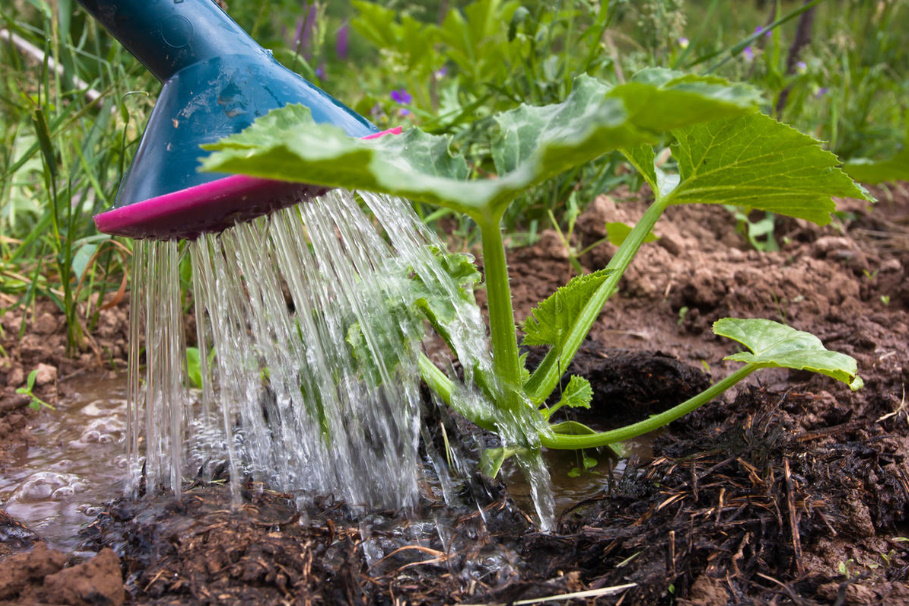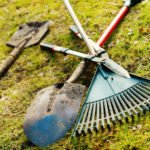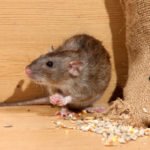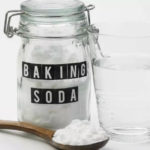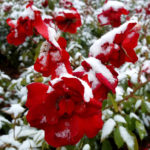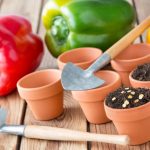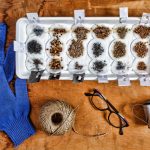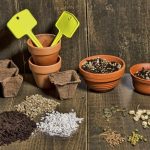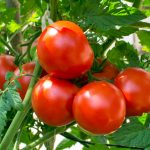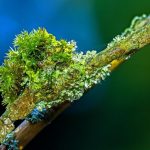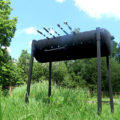When is it better to water — in the morning or in the evening? A question around which many copies have been broken on country forums — but there is still no unambiguous answer… Supporters of both directions agree that it is not worth watering during the day, especially in the heat and in the bright sun: the water will evaporate quickly without wetting the ground, and drops on the leaves may lead to burns of plants. Therefore, you need to water in the morning. Or maybe, after all, in the evening, when the heat has let go?
Both “factions” use quite convincing arguments in defense of both evening and morning watering. English literary critic and lexicographer Samuel Johnson wrote that “logic is the art of coming to an unpredictable conclusion.” Let’s try to solve our question by reasoning logically: maybe an unpredictable conclusion will reveal the watering truth?
At what time is it better to water?
Upon closer examination, the case of watering begins to resemble the enmity between the pointy and the blunt-edged ones from Swift’s Gulliver’s Travels. Judge for yourself: all the arguments of the opposing sides can be reduced to two points.
- Supporters of the “get up early — and immediately for a watering can” method are based on the following positive aspects of morning watering — plants receive the necessary moisture supply for the day, and excess water (if any) will evaporate, and increased humidity will not lead to the development of fungal diseases.
- Those who advocate evening watering, give such an argument — plants are given the necessary supply of water for the night, and water is consumed more economically.
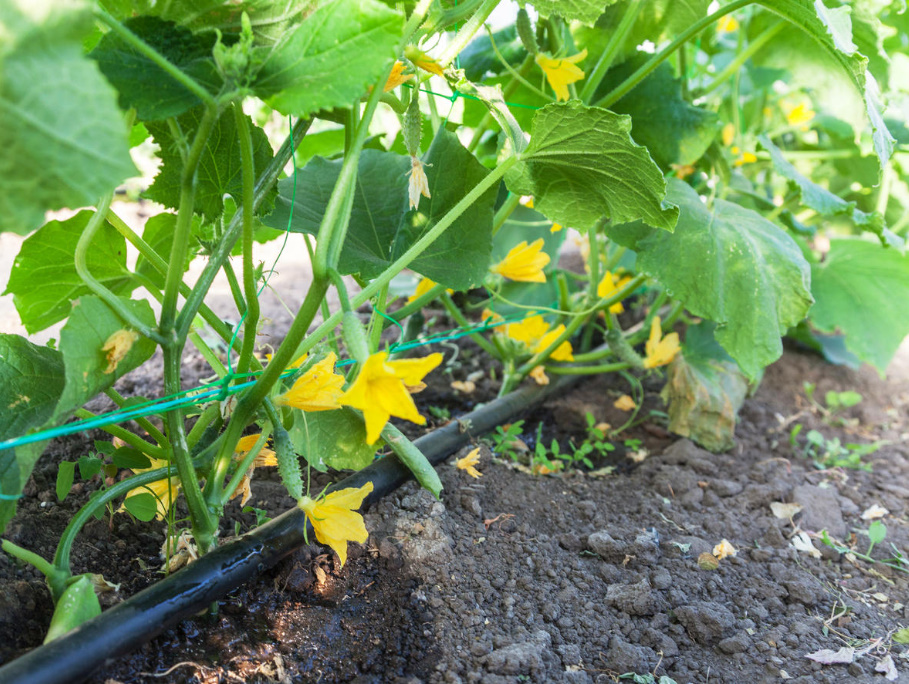
To solve the problem, let’s figure out: why are we watering at all?
Plant physiology — in simple words
Plants can consist of 97% water. Therefore, water is a vital factor for them: it somehow participates in all processes of the plant organism. Ordinary plants (not epiphytes) absorb the main amount of moisture by the roots.
Water exchange
Further, the liquid with dissolved mineral salts moves up the vascular system of plants (xylem), representing a medium for a variety of chemical reactions in cells, and eventually mostly evaporates leaves. This phenomenon is called the water exchange of plants. And the ratio of constantly running parallel processes (absorption and evaporation of water) — water balance. In fact, a plant is a natural pump that pumps water from the soil into the atmosphere: the production of 1 g of dry matter can account for more than 1 liter of liquid.
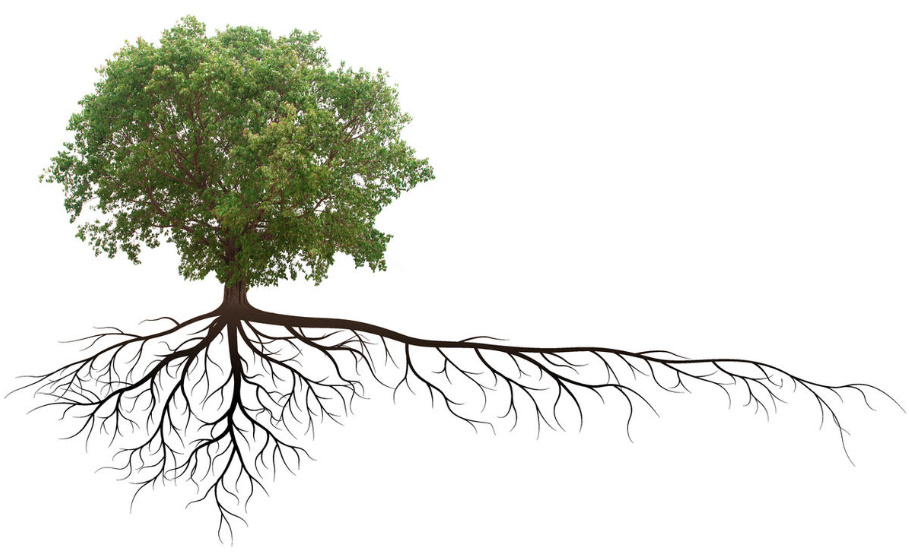
Plants use water to maintain turgor (the stressed state of cells), transport nutrients (in both directions — from the roots to the leaves and vice versa), photosynthesis and transpiration. Transpiration (the process of water moving through the plant and evaporation by its leaves) is necessary for two reasons — evaporation cools the leaves to a physiologically comfortable temperature (protects against overheating) and creates the necessary hydrostatic pressure in the cells of the vascular system, thanks to which moisture is absorbed from the soil, and the green organism receives minerals.
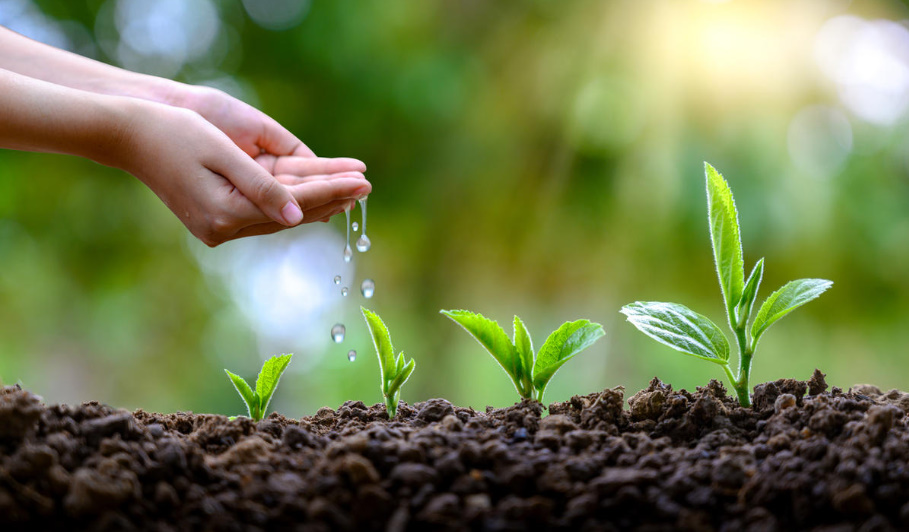
Plants consume and use a non-constant amount of water during their life. It depends on many reasons:
- from the development phase. Young people have higher transpiration;
- temperatures. The hotter it is, the evaporation (and hence the absorption of moisture by the roots) is stronger;
- humidity of the surrounding air. The drier the air around the plant, the more it evaporates moisture;
- time of day. In most plants, transpiration is most active in the middle of the day (at 12-13 o’clock);
- the amount of co₂ in the atmosphere. Increasing its concentration reduces water loss by plant tissues. As a result, drought resistance increases;
- Sveta. In the dark, transpiration almost stops, and, accordingly, the absorption activity of the root system decreases.
And of course, the need for watering depends on the culture.
What do plants do during the day and what do they do at night
During the day, plants, using solar energy, synthesize glucose from water and carbon dioxide. It, in turn, turns into energy for life and is transformed into other organic substances that make up the body of a green organism. This is called photosynthesis.
During the daytime, the main fluid consumption is due to transpiration: for effective absorption of co₂, plants increase a large area of leaves. But a lot of leaves = a lot of evaporating water. Specifically, less than 1% of the total amount of liquid is spent on photosynthesis. The lion’s share of water consumed (up to 99% of moisture absorbed by the roots!) — this is a “payment” for the area of leaves that absorbs carbon dioxide and photons of sunlight.
And what do plants do at night? At night, the reactions of the dark phase of photosynthesis (which do not require light energy) and the processing of the product of photosynthesis — glucose occur. All these processes require water.
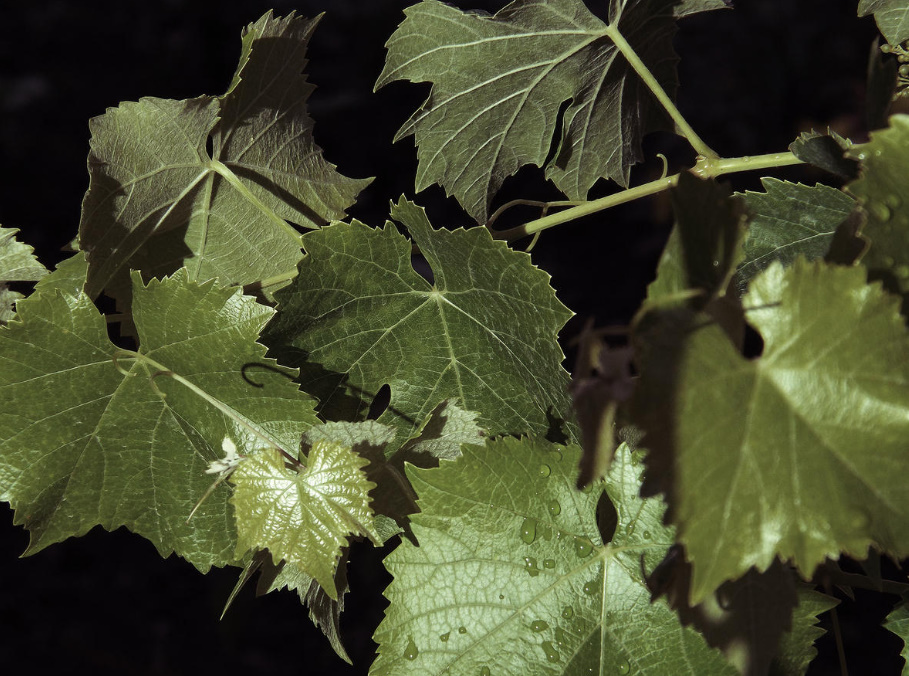
In a climate where there is a clear alternation of high daytime temperatures and cooler nights, at night most plants grow almost 30 times faster than during the day. In the dark, they use organic substances synthesized in the light: they increase the size, leaf mass, lay buds, form and pour fruits. At the same time, the number of cells and their size increases, which means that the need for water as a filler of intracellular and intercellular space increases (we remember that plants consist of water almost entirely!).
We determine the watering time
From the above it is clear that the plant should be fully provided with water if we are interested in the harvest. Now it remains to determine when to water.
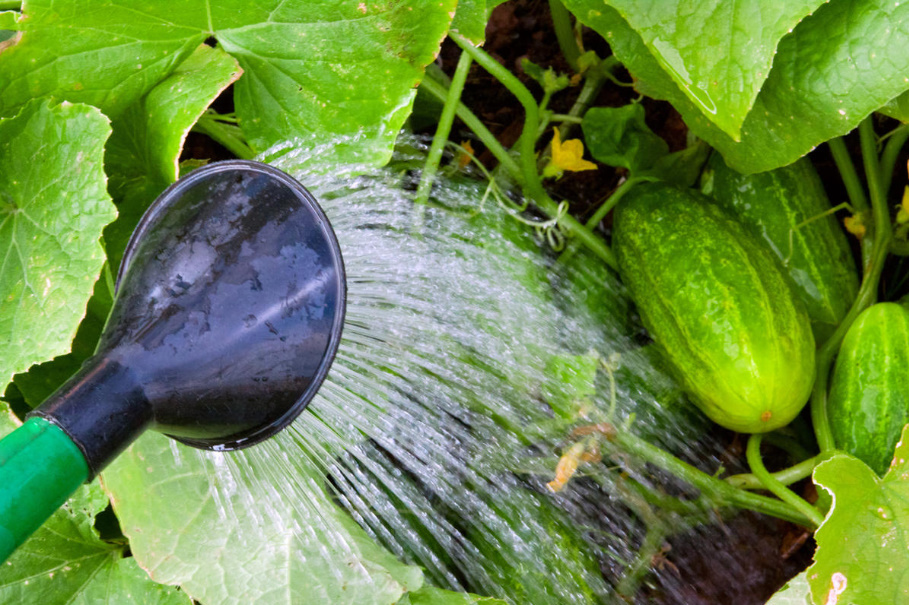
Watering in the morning
When watering in the early morning, the plants will be in good shape (turgor) and provided with the intake of minerals during the day. In the heat, they will have something to evaporate, cooling themselves. Bright sun and an increase in temperature in the afternoon stimulate the processes of fruit growth and filling at night.
But at the same time, by the evening the plant can exhaust all moisture reserves, and there will be no water left in the soil for growth (an increase in the number and size of cells). A nighttime drop in temperature and condensation will restore freshness to the leaves and in the morning will deceptively please the gardener with a cheerful look of the wards. After receiving the next watering portion, the plant will begin photosynthesis and transpiration with renewed vigor. And the harvest suffers: there was no water for night growth. Saturated with moisture early in the morning, plants tend to catch up. This leads to cracking of the fruit: the pulp grows, but the peel does not have time.
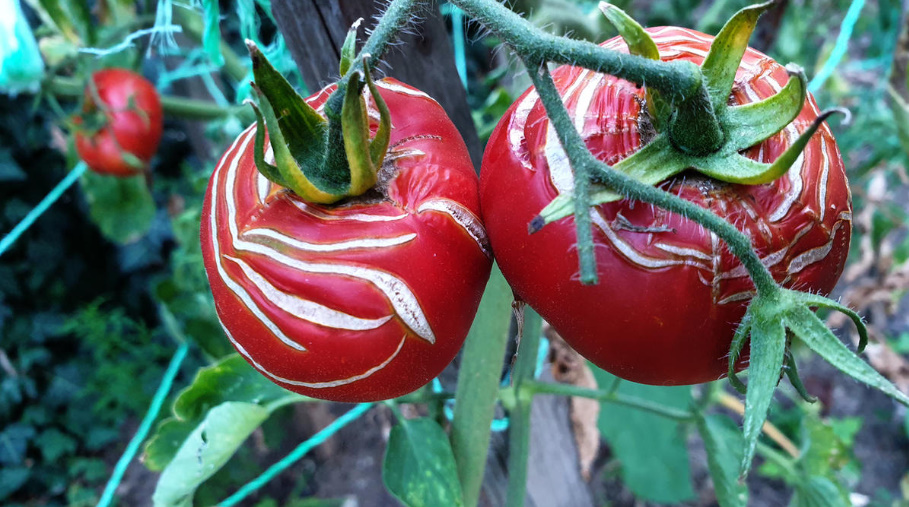
The second problem is the occurrence of a shortage of trace elements (for example, calcium) and, as a consequence, the appearance of vertex rot. The plant spends liquid on growth and suspends the operation of the “pump” pumping the nutrient solution.
Watering in the evening
Evening watering provides the necessary resources for growth. But if the amount of water is not enough, the plant will be limited in water on a hot day — transpiration decreases. Losing moisture, the leaves will become sluggish, the area of absorption of solar energy and co₂ will decrease. To reduce evaporation, the stomata will close, which means there will be less use of carbon dioxide. Accordingly, the efficiency of photosynthesis will decrease — plants will accumulate less sugars. The lack of moisture will also affect the operation of the “pump” that supplies nutrients.
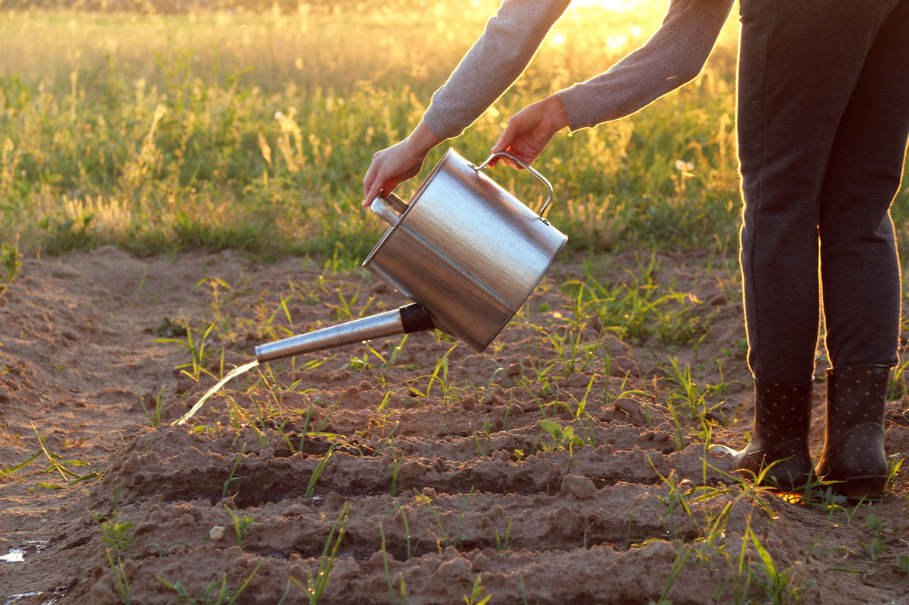
When to water plants in a greenhouse
You can water it in excess, so that it is enough for all the needs of the plant — both day and night. But there may be another problem that is relevant for the closed ground — high humidity and fungal and bacterial infections.
Proponents of morning irrigation believe that watering at the beginning of the day, unlike in the evening, eliminates this problem — the sun will dry. However, in fact, during the evening delivery of water into the greenhouse space, less evaporates:
- when watering the cooling soil, moisture penetrates faster and deeper into the bed. In the morning, on the contrary, the soil begins to heat up and evaporate the newly introduced water;
- in the dark, most plants practically do not evaporate — and in the daytime, on the contrary, the humidity of the air increases greatly due to transpiration. In the evening, the warm air saturated with water vapor comes into contact with the cooling walls of the greenhouse, leaves and soil — condensation forms.
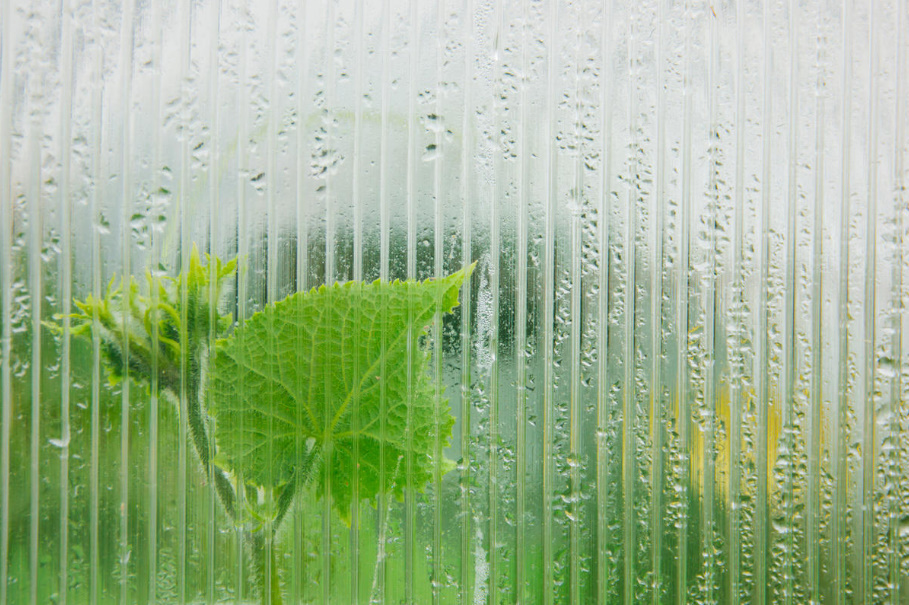
When is it right?
There is no answer to the question of when to water correctly, because there are many options for gardening situations. In particular, the inclusion of a suburban water supply system on a schedule may interfere — what kind of proper watering is there! Each gardener is forced to make his own decision depending on his capabilities, region, air temperature, season (beginning, middle or end of summer), phase of plant development, their condition and other things. “All is true, believers may break eggs from the end from which it is more convenient” (J. Swift, “Gulliver’s Travels”).
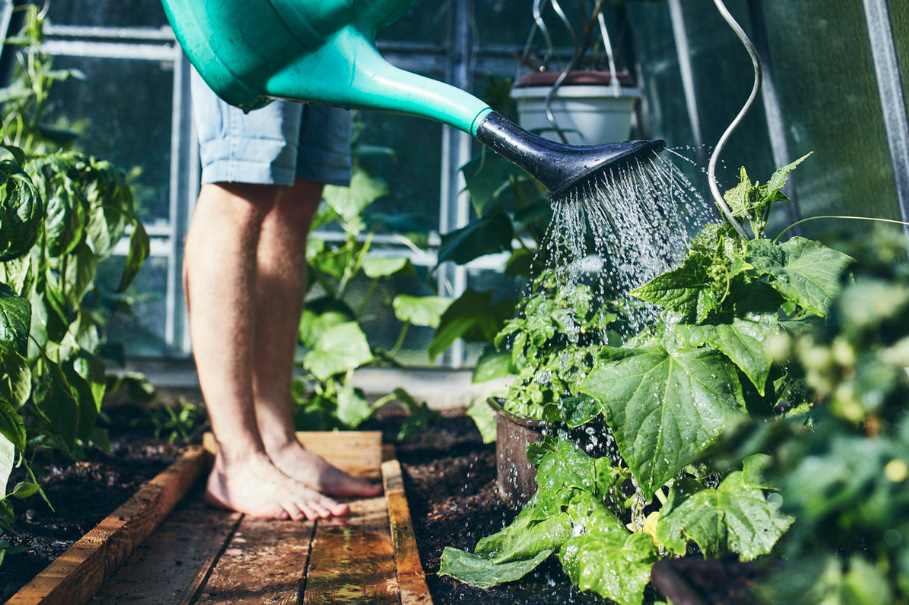
In general, it seems to me personally that it is optimal to water in the evening. And what do you think? Share your thoughts on this in the comments.
